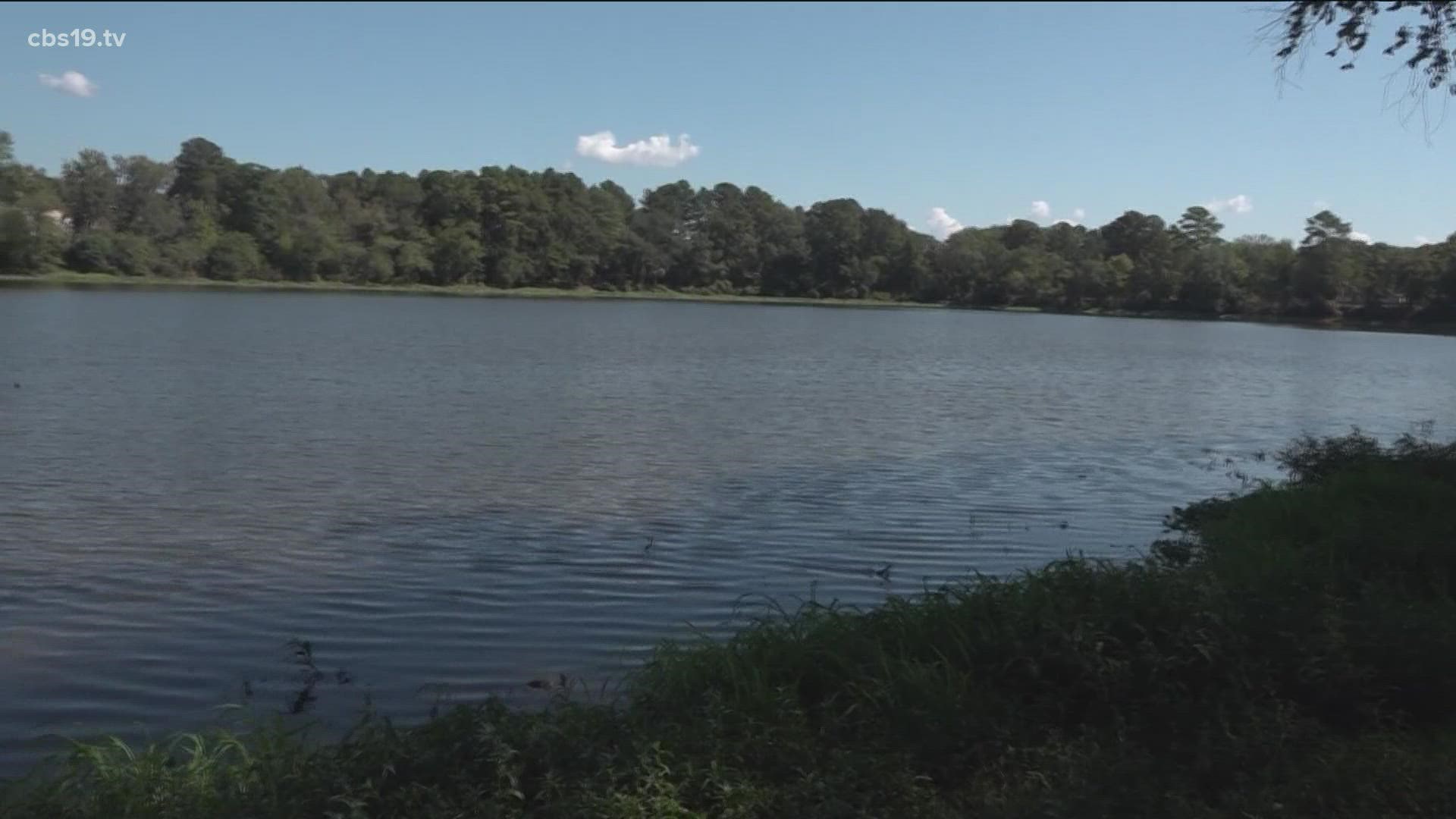TYLER, Texas — East Texas saw a record-warm December where average temperatures were roughly 13 degrees warmer than normal.
And maybe you've said to yourself, 'winters aren't as cold as they used to be.'
A warmer climate stresses everything from our health to the health of Texas wildlife and outdoor recreation. But so far - so good for trout season in Texas.
CBS19 watched as Texas Freshwater Fisheries Biologist Jeremy Gillert tested the water at an East Texas Lake. He was looking for specific requirements to support the fish.
"We want to make sure the water body has enough oxygen in it" Gillert said.
UT Tyler assistant biology professor Ryan Shartau also studies the health of lakes and fish habitats.
He says fish have a certain temperature range in which they can tolerate and have certain requirements for oxygen levels. He’s concerned warmer temperatures could lead to warmer water temperatures. That can impact fish in multiple ways.
For example -- toxic algae blooms. These blooms can stress or kill fish by clogging their gills or reducing oxygen in the water. This can put fish at risk of disease or parasites, which in turn can make fish more susceptible to predators and ultimately impact a fish’s ability to reproduce.
“It is very serious and that’s why the issue of climate change is so important especially for aquatic requirements," Shartau said.
It’s also important because almost 2 million anglers fish Texas lakes and rivers. That’s a nearly $.15 billion impact. That’s big business and a big reason to protect our natural resource.
Again, we're in good shape right now, but data from Climate Central, a think tank of scientists who monitor climate trends, show winter temperatures in East Texas on the rise since the 1970s. Rising air temperature leads to warmer lake and river temperatures. If that trend continues, scientists are concerned what that could mean for the Texas rainbow winter trout season.
Texas Freshwater Fisheries Center Director Tom Lang poses a valid question.
“Habitat is key, and if you even think about their native ranges, what happens if we continue to have warmer and warmer winters, are we going to continue to have cool enough waters to support great fishing opportunities like trout fishing in winter?," sad Lang.
We asked biologist Donovan Patterson how warmer temperatures could impact Texas bass season. He says you can’t compare bass to trout because it would be like comparing sheep and cows. But he told us rainbow trout can shed some light on the health of Texas lakes, rivers and streams.
“Trout are non-native," said Patterson. "So, they can’t teach us a whole lot. But the family of fish trout belong to Salmonid need clear, clean crisp water and they’re often found in rivers and streams. And rivers and streams have to be really healthy to support this family of fish. So, if we’re putting them in Texas rivers then there’s probably healthy waters in those rivers”.
So, the question remains, how do we make sure Texas lakes stay healthy? Shartau has recommendations.
"Avoid fishing in the hottest part of the day, and don’t fish if water quality advisories are issued," Shartau said. "Longer-term solutions include reducing carbon dioxide emissions and improving water flow on streams and rivers. It’s not all gloom and doom, but I think it’s something that we need to take some action to allow these fish to be successful.”

